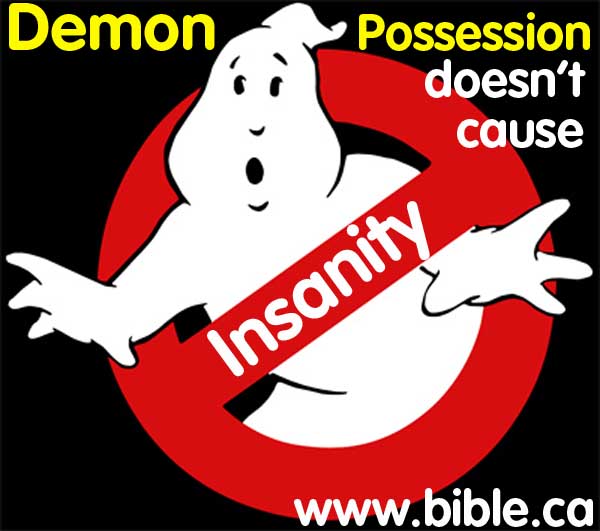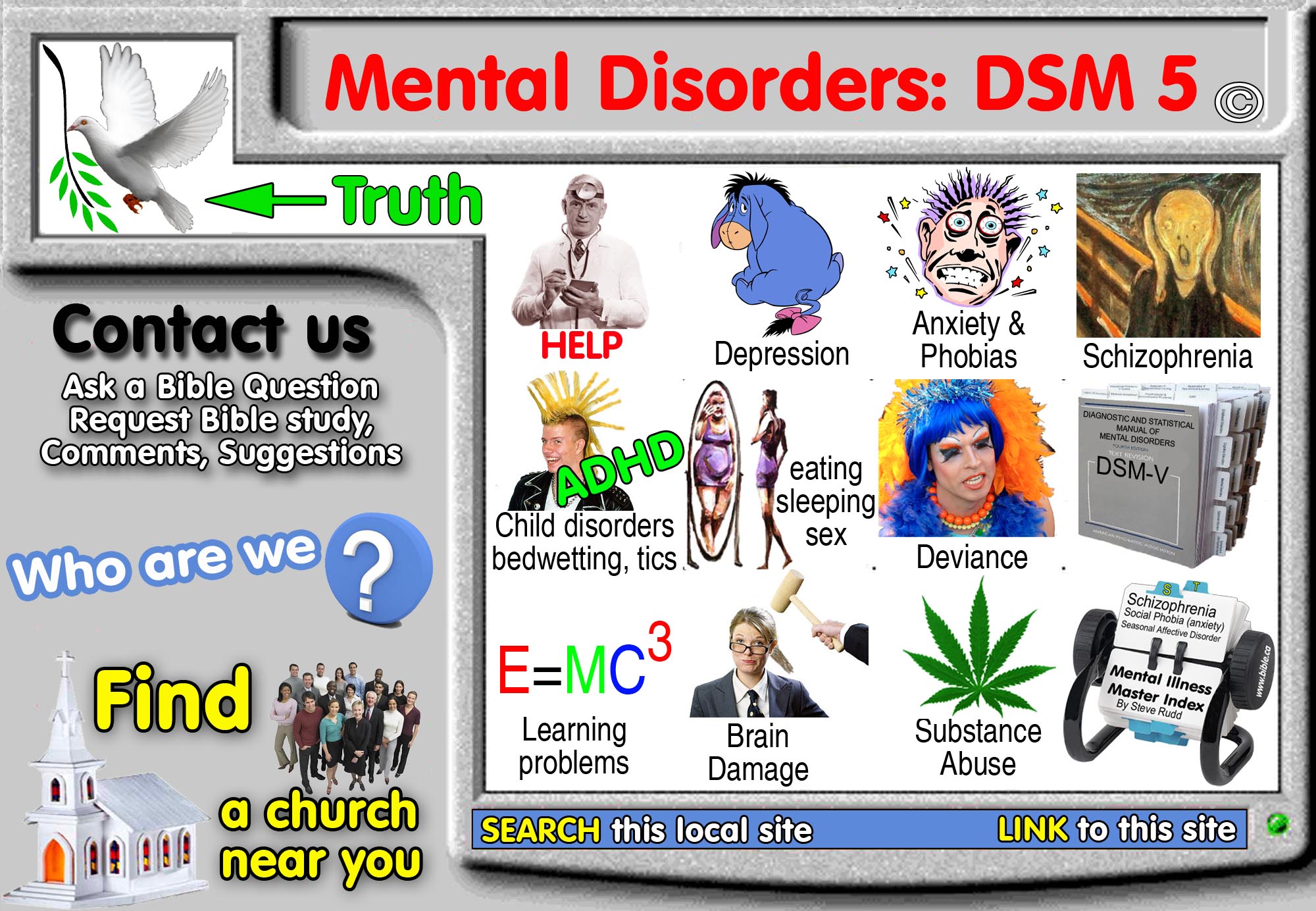Essay on
the Demoniacs of the New Testament
Hugh Farmer
(Church minister)
1775 AD

|
|
Introduction:
- See also the cases of "Demon" and also the case of "Bewitched".
- Insanity is not Demon possession! more
- In 1775 AD, Hugh Farmer, church minister, correctly taught that demon possession never caused insanity. Farmer would not "ascribe madness and epileptic fits to possession, rather than other disorders". The Bible does teach demon possession during the apostolic age, but oddly, he Farmer did not believe the devil or demons even existed. Instead he explained the Devil and demons to be caused by physical diseases like epilepsy or flu viruses. Farmer said, "the New Testament doth not countenance the doctrine of real possessions." Demon possession is real in the New Testament and is always accompanied by supernatural powers and knowledge. It was impossible for demon possessed men to be bound with even chains. They also knew things normal humans did not know. People in need of the N1H1 flue vaccine or epileptics never exhibit supernatural power and knowledge. Demon possession was a real thing in the apostolic age, but did not cause insanity. Farmer believed that Jesus did perform genuine miracles of casting out demons, but equated it with a miracle of healing a simple disease. "From hence it follows, that when we read in the New Testament, that Christ and his apostles cast out demons; this must mean, that they cured demoniacs; and it can mean no more . . . And therefore when we are told, that the demon threw down a man, who is said to have an unclean spirit, and convulsed him, and then came out of him, and hurt him not; the meaning must be 'that his disorder', which was of the kind ascribed to demoniacal possession, returned upon him with great violence." Notice Farmer rejects demon possession and instead calls it a "disorder". Farmer almost stands alone as a church preacher for first equating demon possession with the diseases like common cold, and second for viewing insanity as having a physical/biological cause. It seems he may have been strongly influenced by William Battie and John Monro, who took the same view. What is important to point out, is that he correctly rejected the idea that insanity was caused by supernatural demon possession. In this regard, he was orthodox among his fellow church preachers. Supernatural demon possession is real, but it has never been the cause of insanity. (Essay on the Demoniacs of the New Testament, Hugh Farmer, 1775 AD)
- "[between 1300 - 1700 AD] Mental illness is judged a phenomenon of natural, not supernatural, origin; commissioners seek to measure mental status, not divine possession" (Diagnosis, Guardianship, and Residential Care of the Mentally Ill in Medieval and Early Modern England, Richard Neugebauer, American Journal of Psychiatry Dec 1989 AD)
- "The repeal of the Witchcraft Acts in 1736 had officially ended the waning belief in demoniacal possession as far as the civil power was concerned but not so among the people in whom, perhaps because of an unconscious dread, there lingered a trace of the uncanny and fearsome in connection with mental illness and the suspicion that it was the work of the devil or punishment for sin. This was kept alive by the insane themselves who not uncommonly confessed to terrible crimes and protested they were in a state of damnation or victims of evil forces, and particularly by the belief that the reality of supernatural possession had scriptural authority. The quotation from Exodus 'Thou shalt not suffer a witch to live' had given the air of righteousness to many a witch hunt and trial and was used as a motto on title-pages of books like The discovery of witches ... lately delivered to the Judges of Assize . . . of Norfolk, 1647 by Matthew Hopkins Witch-finder', and had cost many a lunatic his life. Such views naturally acted as a brake on the development of a rational attitude to the insane and the medical study of insanity. Farmer was not the first theologian who attempted to contradict them but his painstaking theological and medical study of 'the Demoniacs of the New Testament' was a major blow to superstition and in this sense an opportune apology for psychiatry at a period of growing interest in the subject. He traced 'upon what grounds ... and for what reason madness and epileptic fits, rather than other disorders, are ascribed to possession' and how this belief had erroneously arisen, to his final conclusion 'confirmed by the view given us of the demoniacs in the Christian church', that they 'were all either mad, melancholy, or epileptic persons'. He was at pains to show that this conclusion in no way detracted from the miraculous cures performed on them since 'the bare ejection of demons cannot be pronounced a greater miracle than the cure of natural disorders'." (300 years of Psychiatry, Richard Hunter, 1963, p 458)
- See also the case of "Demon" and also the case of "Bewitched"
Essay on the Demoniacs of the New Testament, Hugh Farmer, 1775 AD
Hugh Farmer (1714-1787)
Minister of religion at Walthamstow near London
An essay on the demoniacs of the New Testament, 1775 London, Robinson pp. 6, 9, 22-6, 120-5, 345-7, 350-I
DEMONIACS OR LUNATICS
With respect to Christians, I see no reason why they should be alarmed at an attempt to shew, that the New Testament doth not countenance the doctrine of real possessions . . . The proper question before us, is, which of these two opinions is best supported by reason, and by revelation .. . With regard to the Heathens, it is well known, that they advanced human spirits to the rank of gods and demons; and that they judged them capable of entering the bodies of mankind, and of producing phrensy and distraction, which . . . was regarded as the most usual effect of demoniacal possession. Prophesying amongst the Heathens was attended with rage and madness. Almost all the oracles belonged to that species of divination which was by fury, such as was imputed to the power and presence of their gods...
The terms employed by the Greeks, to describe persons inspired, possessed, and disordered in their understandings, serve to shew, that the spirits by whom these persons were thought to be actuated, were not fallen angels, but the gods the Heathens worshipped; particularly such as were of human origin, or mere fictions of the imagination. This observation holds true also with respect to the terms employed to describe the same persons by the Latins. We are indeed expressly informed by Hippocrates, that the Greeks referred possession to their gods, particularly the mother of the gods, Neptune, Mars, Apollo, Hecate, and the heroes, who were all human spirits. The design of his treatise on the Epilepsy is to shew, that this disorder was neither more divine, nor sacred than other disorders; in opposition to priests, magicians, and impostors, who referred it more immediately to the gods, and undertook to cure it by expiations and charms. And we are certain, that amongst the Latins, the spirits that actuated the Cerriti and Larvati (who most exactly answered to the demoniacs of the New Testament) were no other than deified human ghosts . . . Now it was the general opinion of antiquity, that some diseases are owing to the influence of the celestial bodies ; and that the paroxysms and periods of others are regulated by the moon in particular. This was the case more especially with respect to epileptic diseases, the fits of which, it was affirmed, constantly returned every new and full moon. Galen says, the moon governs the periods of epileptic cases . . . Hence epileptics were, by the Greeks and Latins, called lunatics. The evangelist Matthew, therefore, without doubt, by lunatics meaned epileptics. He could not be ignorant of the common signification of this term; and hath himself recorded an instance of its application to an epileptic case. Hence it appears, on what grounds the ancients in general, and the evangelists in particular, distinguished between demoniacs and lunatics; the former of whom we call maniacs, and the latter epileptics. These two disorders are attended with very different symptoms; and they were formerly by some ascribed to different causes, (one to the inhabitation of demons, the other to the influence of the moon) from which they borrowed their respective denominations. It is necessary to add, that the same person was reputed by many both a demoniac and a lunatic: a demoniac, because they referred the epilepsy to the possession of demons; a lunatic, because the fits of this disorder were thought to keep lunar periods. If some asserted the natural influence of the moon upon this disorder; others taught, that the patients were more subject to the incursions of demons at the changes of this planet than at any other time. This, perhaps, was thought to be the case of the youth described in the Gospel. His father represents him both lunatic and sore vexed with a demon. He was what some modern physicial call epileptic mad. He was not considered as being mad or vexed with demon at all times, but only under the paroxysms of his epileptic disorder which returned at the changes of the moon. These observations serve account for the language of the evangelists, both when they distinguish possessions from lunacies, and when they join them together as kindred disorders.
It may be observed further, that the reason which induced the ancients to ascribe madness and epileptic sits to possession, rather than other disorders, could not be that very general one commonly assigned, viz. that in the earliest ages, men could not account for the epilepsy, (for example, without having recourse to a supernatural agency. For, without having recourse to that agency, they could not account for the palsy, the leprosy and other disorders . . . The true reason therefore must be drawn from the peculiar symptoms of the epilepsy, and certain kinds of madness, whit were such as seemed to them to argue, not a transient act of some evil, spirit, or an effect produced in the human body all at once by his operatic upon it; but his entrance into the body; his seizing the mind, thereby preventing the regular use of the rational faculties, and sometimes of the corporeal senses; and his causing the patient to speak and act under his direction . . . 'Why then', we are asked, 'were not demoniacs called by the proper name of madmen, if they were really such?' In answer to the objection, it may, I apprehend, be safely asserted, that the vulgar guage, serving to express the outward and sensible symptoms of demoniacs, sufficiently answered the end of language, the conveying to a just idea of their disorder. Nay, the language of the evangelists is much more clear and determinate, and gives us a more perfect notion of the demoniacs, than a general declaration of their insanity would have done. For though the ancients thought all possessed persons to be disordered to their understandings; they did not think every disorder in the understanding to be the effect of possession. Between different demoniacs likewise there was a great distinction made. The moderns reckon three species of madness, the mirthful, the melancholy, and the raving: which, variously compounded, together with anger and boldness, fear and sadness, create great diversity of phenomena in maniacs. Now the precise difference of distinction between different madmen was well preserved by the vulgar language. For different symptoms of insanity were ascribed to different spirits, and from them received their respective denominations. Hippocrates, in his treatise on the epilepsy, says, that each distinct affection of was referred to a particular deity as its cause. If persons imitated a goat their disorder was attributed to the mother of the gods; if they made noise like a horse, to Neptune; if they foamed and kicked, to Mars. He adds, Wherever there are great terrors in the night, and persons are beside themselves, jumping out of bed, and running out of doors; these thin are said to proceed from Hecate, and the possession of heroes. Accordingly madmen were called (cerriti) the possessed by Ceres, or (larvati) the possessed by the ghosts of bad men, or distinguished by some other appellation, according to the different symptoms of their respective disorders . . . and these names accordingly described the nature of those distempers ...
It being known what effects the ancients described by possession, it is impossible we should be ignorant what they meaned by dispossession. If the former phrase was expressive of a disorder, the latter must be so of a cure. The demon and the disorder were originally supposed to bear to each other the relation of cause and effect : and the ceasing of the effect was implied in, and expressed by, the removal of the cause. As the entrance of demons into any person denoted his becoming mad, so their going out, or being cast out of him, necessarily included his coming again to himself... From hence it follows, that when we read in the New Testament, that Christ and his apostles cast out demons; this must mean, that they cured demoniacs; and it can mean no more . . . And therefore when we are told, that the demon threw down a man, who is said to have an unclean spirit, and convulsed him, and then came out of him, and hurt him not; the meaning must be 'that his disorder, which was of the kind ascribed to demoniacal possession, returned upon him with great violence; but though he had usually suffered much pain under the paroxysms of it, our Saviour, the very moment he fell into his sit, interposed for his relief, prevented his pain, and restored him to a state of perfect sanity'.
By Steve Rudd: Contact the author for comments, input or corrections.
Send us your story about your experience with modern Psychiatry

